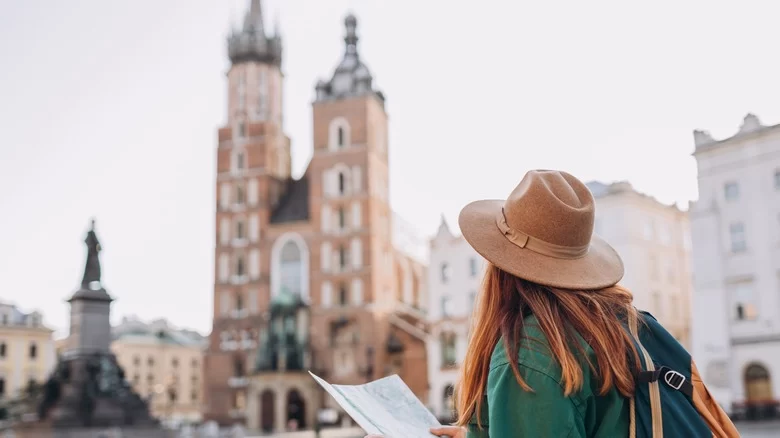How to Deal with Culture Shock While Traveling the World: Tips and Strategies
- Understanding Culture Shock
- Signs of Culture Shock
- Strategies for Overcoming Culture Shock
- Personal Experiences and Stories
Understanding Culture Shock
Culture shock is a natural part of traveling the world, especially when you immerse yourself in a culture vastly different from your own. It can manifest as a sense of confusion, frustration, or even isolation as you adjust to new social norms, food, language, and daily routines. While it’s a common experience, understanding culture shock is the first step toward overcoming it. Recognizing that it’s part of the journey allows you to approach it with patience and an open mind, making your travel experience more enriching in the long run.
Signs of Culture Shock
Culture shock doesn’t always hit immediately, and its symptoms can vary greatly from one person to another. However, some common signs to watch out for include:
- Homesickness: Feeling disconnected from family and friends and missing the comfort of home.
- Frustration: Becoming easily irritated by unfamiliar practices or everyday tasks that seem more difficult in a new environment.
- Loneliness: Struggling with language barriers and missing the familiarity of your own culture.
- Confusion: Feeling disoriented by different social norms, traditions, or even food.
- Withdrawal: Retreating from social situations or avoiding interactions with locals.
Recognizing these signs early on can help you address them before they become overwhelming. Everyone experiences culture shock differently, so it’s important to be aware of your emotions and take proactive steps to adapt.
Strategies for Overcoming Culture Shock
Once you recognize that you’re experiencing culture shock, it’s time to take action. Here are some effective strategies for adapting to a new culture and overcoming culture shock:
1. Take it Slow and Be Patient
One of the most important things to remember when dealing with culture shock is to take your time. Don’t expect to adjust overnight. Allow yourself to slowly adapt to the new environment, and don’t be too hard on yourself if things don’t feel comfortable right away. The more patient you are with yourself, the easier it will be to navigate the challenges ahead.
2. Connect with Locals
Building connections with locals is one of the best ways to adjust to a new culture. Not only will you gain insights into their way of life, but you’ll also start to feel less isolated. Whether it’s through a shared meal, a friendly conversation, or participating in local activities, interacting with the local community can help ease the transition and make you feel more at home.
3. Maintain Familiar Routines
When everything around you feels new and overwhelming, sticking to some familiar routines can provide comfort. Whether it’s your morning coffee ritual, a daily walk, or keeping in touch with loved ones back home, these small acts can ground you and help you cope with the changes you're experiencing.
4. Embrace New Experiences
Instead of resisting the differences, try to embrace the new culture and experiences with an open heart. Whether it’s tasting new foods, learning the local language, or participating in cultural traditions, the more you open yourself up to new experiences, the more rewarding your travels will be. These moments often become the highlights of your trip.
5. Learn the Local Language
Language barriers can be one of the biggest sources of culture shock. However, learning even a few basic phrases in the local language can go a long way in easing the discomfort of feeling disconnected. It shows respect for the culture, helps build rapport with locals, and boosts your confidence in navigating everyday situations.
Personal Experiences and Stories
Many travelers have faced culture shock, and their stories can provide valuable insights into how to cope with the challenges. For example, Emma, a backpacker from the UK, recalls her first time in Japan. She initially struggled with the language barrier and the unfamiliarity of Japanese customs. But after spending time with a local host family and attending traditional tea ceremonies, she was able to embrace the cultural differences. Over time, Emma grew fond of the Japanese way of life, and the experience became one of the most rewarding aspects of her travels.
Similarly, David, an American traveler, found himself overwhelmed by the busy streets and chaotic energy of Delhi, India. It was his first trip to Asia, and the cultural differences were stark. But after connecting with a local guide and learning more about the customs and history of India, David’s experience transformed from frustration to admiration. His story emphasizes the importance of remaining open-minded and flexible while traveling.
Culture shock is a normal part of traveling the world, but it doesn’t have to be an obstacle. By understanding the signs, applying effective coping strategies, and embracing the new culture, you’ll find that overcoming culture shock is not only possible but can lead to some of the most rewarding experiences of your travels.
Ready to start your journey and handle culture shock like a pro? Visit How to Travel the World for more travel tips, guides, and inspiration!







